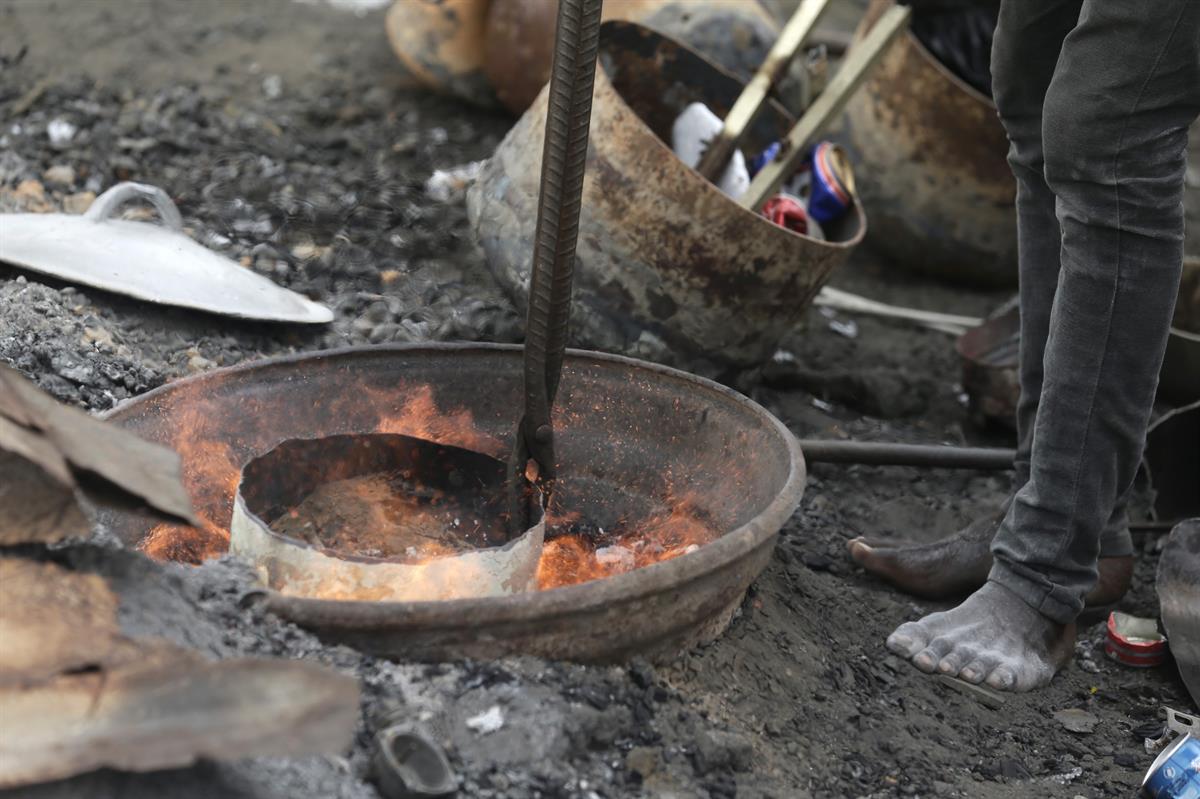New research indicates a third of all children have high levels of lead in their blood, putting their mental and physical health at risk.
Africa is the worst-affected region after South Asia, the study says, with Nigeria topping the list for the region.
The research, carried out by the UN children’s agency (Unicef) and the environmental group Pure Earth, warns concentrations of lead in the body can be so high that they stop the development of the brain, heart and other vital organs.
Lead comes mainly from inadequately recycled waste, like batteries, and industries such as mining and open-air smelters, it adds.
Many children across the continent work in car garages and informal electronic waste recycling sites, where they are dangerously exposed to lead.
An official with Ghana’s environment protection agency said up to 60% of lead poisoning in his country was happening because of restaurant utensils that were made from scrapped aluminium.
Another government official in Senegal said lead-based paints were also a major source of poisoning in children.
The report’s authors have called for urgent action to stop children being poisoned on what they say is a massive and previously unrecognised scale.




